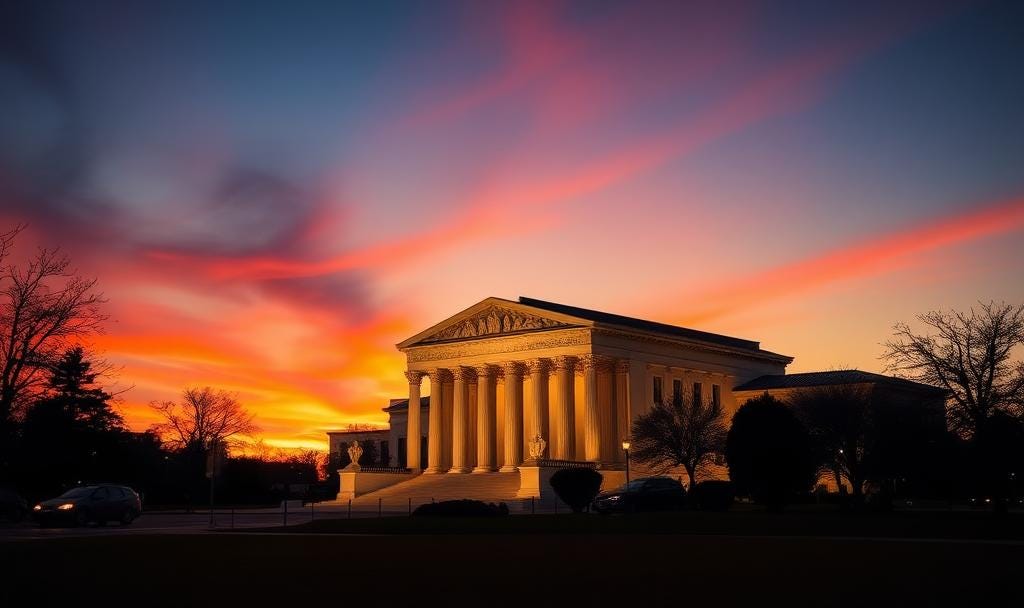Inside Judicial Watch’s Blockbuster Suit on Candidate Standing
Trump’s suits in 2020 were tossed overwhelmingly for lack of standing, despite his efforts to hold down the most important office in the world. What does this seemingly obscure case do for elections?
The United States Supreme Court is getting ready to hear a very important case about American elections. No, it isn’t a case to do what we wish would happen - throwing illegitimate office holders out by their hair, but if it goes the right way - it may have a preventative effect by making sure such vividly detailed evictions need not be undertaken in the future.
Tom Fitton’s Judicial Watch, one of the most effective organizations in America at exposing and pushing back corruption, has struck again, with oral arguments beginning today for the lawsuit Rep.Michael J. Bost, Laura Pollastrini, and Susan Sweeney v. The Illinois State Board of Elections and Bernadette Matthews. This suit is in response to a previous decision finding that Representative Bost (Republican, IL-12) and the plaintiff electors lack standing to sue the State of Illinois over its policy of counting ballots received as late as two weeks after Election Day, so long as they are postmarked in time.
From Judicial Watch:
Illinois counts mail-in ballots received up to two weeks after Election Day. Petitioners, candidates for federal office, claim that under controlling federal law that is two weeks too long. As a result, Illinois is counting unlawful ballots and producing inaccurate vote tallies, while simultaneously hurting petitioners’ prospects at the ballot box and injuring their pocketbooks. Everyone from the United States to the ACLU and the ACLJ agrees that petitioners have standing. Illinois disputes that remarkable consensus only by ignoring common sense (and the dangers produced by the Seventh Circuit’s rule) and by imagining non-existent waivers that did not deter the Seventh Circuit from denying standing because Congressman Bost’s electoral prospects were too bright and his pocketbook injuries too speculative…
It is wrong because candidates have standing to challenge the rules that govern their elections, especially when their merits theory (which must be credited for standing purposes) is that the challenged rule produces an inaccurate final tally. At a minimum, the candidate has standing when (as here) he plausibly alleges that the challenged rule will harm his electoral prospects and reduce his bank balance because he needs to pay campaign staff an extra two weeks. And the decision is dangerous because it forces judges to play political prognosticators, skews standing rules to favor certain kinds of candidates, and funnels election disputes to the worst possible context—namely, after the election where judges are asked to declare political winners. This Court should reverse.
John Solomon’s outlet, Just the News, has a good read providing further detail on this matter:
Currently, 15 states and Washington, D.C., accept mail-in ballots postmarked by Election Day if they are received after the election, according to Ballotpedia. The states are Alaska, California, Illinois, Maryland, Massachusetts, Mississippi, Nevada, New Jersey, New York, Ohio, Oregon, Texas, Virginia, Washington, and West Virginia.
Why This Case Matters
This case isn’t going to invalidate the ridiculous laws of the above states allowing late-arriving ballots to be counted; interestingly, Fitton has a separate case pending in the Supreme Court on the late ballots issue. If the plaintiffs are given the desired relief, the critical question of standing will be addressed and pave the way for those candidates who are set to be robbed in future elections to make the case before a court over what are widely perceived as unfair election laws, like Universal Mail-In Voting, which has plenty of low-hanging fruit to use against it. It amazes me that the President of the United States can somehow lack standing over his own race for the most important and powerful office in the world, yet every activist group under the sun can lodge a case in front of a cherry-picked judge to challenge any executive order that President issues to address the widespread issues in electoral corruption. If you recall, Trump had dozens of suits tossed over standing before and after the 2020 election.
I have detailed some of those 2020 post-election challenges, which took place while President Trump was fighting to stay in the White House, in my forthcoming book, The American War Against Election Corruption, and noted the difficulties in assembling high-quality cases with so little time to compile the information and file the suit on time.





